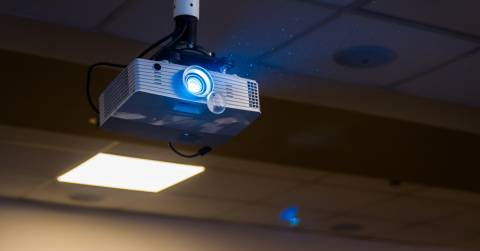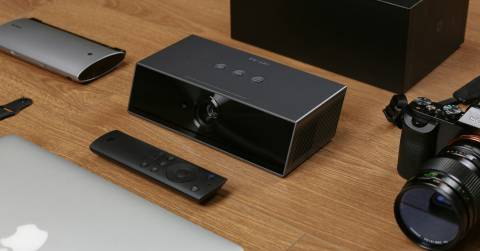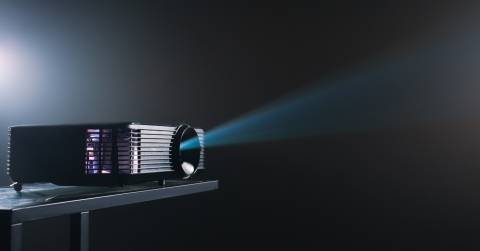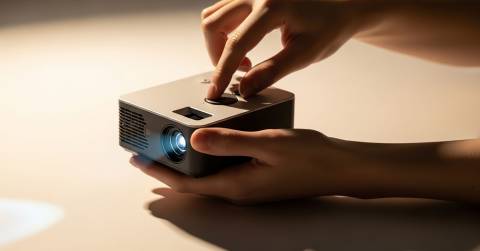The 8 Best Epson Cinema Projector For 2025
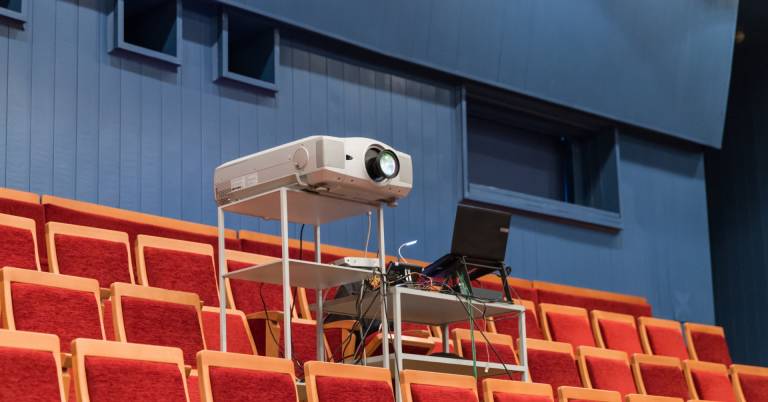
Summary
Epson Flex CO-W01 Projector
Epson HC1080 3LCD Projector
Epson 3800 4K Projector
Epson has long been a leader in the projector market, and its cinema projectors are designed to bring theater-quality visuals into your home. With bright displays, vivid colors, and sharp resolution, Epson projectors deliver an immersive viewing experience that’s perfect for movie lovers, gamers, and families who want big-screen entertainment.
When choosing the best Epson cinema projector, key factors to consider include resolution (Full HD vs. 4K), brightness (ANSI lumens), contrast ratio, and connectivity options. Some models are designed for dark home theater rooms with incredible color depth, while others emphasize higher brightness for flexible setups in living rooms or outdoor spaces.
After comparing top options, our top recommendation is the Epson Flex CO-W01 Projector, which combines excellent brightness and dynamic contrast. Alongside it, we’ll also highlight other strong Epson cinema projectors that deliver big-screen performance for every type of setup.
Our Top Picks
Bright, vivid images with 3,000 lumens 3-chip 3LCD tech Compact, lightweight, and portable design Easy HDMI connection for streaming devices
Menu navigation can be a little complicated
The enormous display, which can project up to 300 inches, is the first thing that catches the eye of the Epson Flex CO-W01. That’s four times larger than a standard 75-inch TV, instantly turning any wall into a theater screen or presentation stage. With 3,000 lumens of both color and white brightness, the images stay vivid and sharp even in rooms with some ambient light. And thanks to Epson’s 3-chip 3LCD technology, colors look natural and accurate without the “rainbow effect” that some other projectors struggle with.
Despite this performance, the projector remains compact and lightweight, making it easy to carry in a backpack for on-the-go use. A built-in speaker adds convenience for both movies and presentations, though pairing it with external speakers will give you a richer audio experience. The only downside is that the menu system feels a bit tricky to navigate at first, especially if you’re used to simpler setups. Once you get familiar with it, though, the projector’s versatility more than makes up for the learning curve.
Sharp Full HD 1080p resolution Bright 3,400 lumens for any room 3LCD tech for vivid, accurate colors Automatic keystone correction
Fan noise can be noticeable
The Epson HC1080 is a perfect product with its crisp 1080p resolution and fast data processing. Whether you’re watching high-speed sports, gaming, or streaming your favorite movie, the visuals remain smooth and detailed. Its 3,400 lumens of brightness ensure the picture stays vivid even in rooms with some natural light, making it versatile for both day and night viewing.
Epson's 3LCD technology is one of its best features since it reproduces 100% of the RGB color signal for each frame. This means you get true-to-life colors without the distracting “rainbowing” effect that some projectors suffer from. Paired with a 16,000:1 dynamic contrast ratio, dark scenes gain depth and richness that make films even more immersive.
Setting it up is straightforward, too. With two HDMI ports, you can easily switch between your gaming console, streaming stick, or Blu-ray player. The automatic picture skew sensor takes care of keystone correction on its own, so you get a perfectly square image without fiddling with settings. Its built-in speaker is handy for quick setup, though connecting to external speakers will deliver a fuller sound. Nevertheless, the fan can be a little noticeable during quiet moments. Still, once the action kicks in, it tends to fade into the background.
Vivid colors with 3LCD tech HDR support for lifelike contrast Bright 3,000 lumens for any room HDMI 2.0 supports 4K HDR at 60 Hz
Requires an HDMI eARC splitter for some audio setups
The Epson 3800 4K Projector quickly distinguishes itself with its 4K PRO-UHD projection technology. It uses clever pixel-shifting to show movies, sports games, and video games with lots of sharpness and clarity. With 3LCD technology, colors look real and right, and there is no annoying "rainbow effect" that some projectors have trouble with.
Another great thing about it is that it has 3,000 lumens of both color and white brightness, so it can be used in both dark theater rooms and places with some light. When you add a 100,000:1 contrast ratio to that, you get deep blacks and bright highlights that make HDR video seem great. The full 10-bit HDR support makes every picture look like it came from a movie, catching small nuances that make the whole experience better.
The projector also features 12-bit video processing, smoothing tonal transitions and reducing visual artifacts for a polished finish. The only challenge comes when integrating with certain audio setups. For example, those using a Sonos system may need a 4K HDMI eARC splitter for proper connectivity. While it’s an extra step, once configured, the pairing of cinematic visuals with quality sound is worth it.
Laser light source 120 Hz refresh for smooth motion 1,200,000:1 dynamic contrast ratio Premium Cinema Lens for edge-to-edge sharpness
Instructions could be clearer for setup
The Epson LS11000 is all about delivering stunning clarity and realism. Using 4K PRO-UHD with advanced pixel-shifting and Precision Shift Glass Plate Technology, it processes over 8.29 million pixels for visuals that are sharp, detailed, and vibrant. The difference is instantly noticeable, whether you’re watching the fine textures in a close-up scene or fast-paced action sequences.
Powered by a Laser Array Light Source, this projector produces consistent brightness and color accuracy, while its Epson Picture Processor optimizes contrast, HDR, and frame interpolation in real time. The Epson Cinema Lens provides another level of quality by making sure that the focus is the same across the whole screen and that no light leaks through. It has 2,500 lumens of brightness, which keeps the picture bright and immersive even in rooms with some light.
The only area that could be smoother is the setup process. The instructions aren’t as clear as you might expect for such a high-end device, meaning it can take a bit of extra time to get everything perfectly dialed in. Still, once configured, the LS11000 delivers an experience that rivals professional cinema screens.
Sharp 4K PRO-UHD with HDR support 2,800 lumens for bright, vivid images 100% of the RGB color signal Low input lag under 20 ms
Doesn’t include a manual for setup
With its 4K PRO-UHD technology, the Epson 2350 4K Projector provides a great initial experience. It improves resolution and color processing for clear, detailed images. With HDR10 and HLG compatibility, scenes have a whole new level of depth. Bright highlights and dark shadows look like they belong in a movie, whether you're watching a big hit or a late-night thriller.
A further advantage is the brightness: it has 2,800 lumens of both color and white brightness, so the picture seems brilliant in all kinds of light. And because of Epson's 3LCD technology, every frame has 100% of the RGB color signal, which keeps the rainbow effect from getting in the way of the experience on other projectors.
Gamers will appreciate the input lag under 20 ms, which makes fast-paced action responsive and smooth. The ability to stream, play, and even watch live TV apps like YouTube TV makes it a true all-in-one entertainment hub. The only drawback is that the projector doesn’t come with a manual, which can make the initial setup feel a bit like trial and error. In general, the 2350 quickly proves itself to be a versatile and high-performance choice for both movies and gaming.
3,000 lumens for bright, clear images Accurate, rainbow-free colors with 3LCD tech Built-in Android TV with voice remote Strong built-in speaker
No mounting points for ceiling installation
When we first researched the Epson Flex CO-FH02, what struck us most was its size. Lightweight and compact, it looked more like a travel gadget than a projector capable of filling a wall. But once powered on, it quickly proved it could punch far above its weight.
Digging into its specs, the 3,000 lumens brightness and Full HD 1080p resolution give it an edge for both business presentations and casual movie nights. Thanks to Epson’s 3LCD technology, it avoids the “rainbow effect” that some other projectors suffer from, delivering more natural color accuracy.
Another key point we found is that it's built into Android TV. Instead of needing a streaming stick or external device, it comes ready with apps like Netflix, Disney+, and YouTube. Reviewers often mentioned how convenient this was for quickly switching between work meetings and entertainment.
Nonetheless, it doesn't have mounting points. This means you’ll need to place it on a flat surface rather than ceiling-mounting it. Overall, the Epson Flex CO-FH02 is a solid option for those who want one projector that can cover both office use and home streaming without much fuss.
Ultra-sharp 4K pixel-shifting detail Smooth 12-bit image processing 2,600 lumens for bright, clear images Deep blacks with UltraBlack Technology
Remote can be slightly unresponsive
The Epson 5050UB is a projector made for those who don’t just watch movies but want to experience them. The three LCD chips are controlled by Epson's Pixel-Shift Processor, which processes millions of pixels to produce an exceptionally sharp 4K image. When you combine it with the 10-bit HDR Processor, the colors seem authentic, whether you're shooting a subject at night with the glare of city lights or a landscape in the daylight with delicate shades of shade.
A 12-bit digital imaging processor applies a smoothing effect to tonal transitions and a reducing effect to compression artifacts when processing images. This eliminates the annoying banding or blocking and makes movies seem the way they were intended to. Another important factor is brightness; with 2,600 lumens, the projector can be used in spaces with moderate ambient light, and high dynamic range (HDR) video looks vibrant and lively.
But the real magic lies in Epson UltraBlack Technology. By controlling light polarization, it achieves an impressive 1,000,000:1 dynamic contrast ratio, delivering inky blacks that make dark scenes feel atmospheric and dramatic. Nevertheless, the remote can sometimes lag. It’s not a dealbreaker, but you may find yourself pressing a button twice now and then. Once you've set it up, though, the projector works perfectly, making it a great choice for anyone who loves home theaters.
Bright 3,600 lumens, great for well-lit rooms XGA resolution keeps text and images sharp Built-in picture skew sensor 15,000:1 contrast adds depth to visuals
No headphone jack
The Epson EX3280 Projector is built for practicality. With 3,600 lumens of color and white brightness, it works well in rooms that are well-lit. You don't have to turn off all the lights to see the picture clearly. That makes it a good partner for training sessions, spreadsheets, and presentations when being able to see everything is important.
The XGA resolution makes text and images clear and easy to see. This projector also has a built-in picture skew sensor that fixes vertical keystone problems on its own, so you don't have to do anything to make your image look square. Its 15,000:1 dynamic contrast ratio makes details in graphs, pictures, and even films pop out with depth and clarity. While it does have a built-in speaker for basic use, you may find yourself wishing for an easy headphone jack or Bluetooth sync option when casting via HDMI, especially if you want to pair it with a larger sound system.
What to Look For in a best epson cinema projector?
It may take a long longer to make the best shopping decision. As a result, we are accessible to assist you with your best epson cinema projector issue at any time of day or night!
There are some highlighted features of best epson cinema projector you should be aware of before make decision:
Connection Methods
Component video, composite video and S-Video all make up the most common connections on large projectors. We're also seeing more projectors that offer direct USB connection to computers via a USB cable. A growing variety of projectors now have USB Type-C ports. The majority of USB-C ports can be used to transfer data or video using the DisplayPort protocol. Most USB-C ports support USB Power Delivery (USB PD), which means that a plugged in projector can supply 100 watts of power to charge a device or to charge it using a USB-C cable (assuming the device is capable of charging over USB-C).
Resolution
The calculation for projectors that have 4K ultra high definition (3,840 x 2,160 pixels) is slightly different.
Light Source
For longer periods of time, LEDs and lasers retain a greater percentage of their original brightness. While all light sources eventually lose their brightness, lamps lose the most in 500 hours. Then, they slowly decline over time. The brightness of LEDs and lasers will decrease more slowly over the course of their lifetimes.
Brightness
The ambient lighting level, size and material of your projector screen will all affect the brightness. You should buy a professional seller if you are installing a projector in a permanent location, such as at your home, to ensure that you get the best image brightness and the correct screen material.
Portability
Contrast Ratio
Contrast ratings can only be used to measure in dark rooms. They don't give any information about ambient lighting. Unusually dark blacks in the projector will result in lower contrast. A brighter projector will perform well in home theaters, but not in living rooms or offices.
Projection Tech
DLP projectors with single-chip DLP chips could be subject to the so-called "rainbow effect." Sometimes, tiny, bright flashes with rainbow-like colors may appear, especially in dark scenes. Some DLP projectors have a minimal effect, while others can produce a distracting result, especially when there are bright areas against shady backgrounds. The rainbow effect is not a problem with LCD projectors, which are safer if someone in your household has sensitive eyes. There are many DLP projectors that produce excellent images.
FAQs
What makes Epson cinema projectors good for home theaters?
Epson cinema projectors are designed with high brightness, vivid color reproduction, and sharp resolution, making them ideal for replicating a theater-like experience at home.
Do Epson cinema projectors support 4K resolution?
Yes. Many Epson cinema projectors feature 4K enhancement technology or native 4K support, offering crisp detail and immersive visuals for movies, gaming, and streaming.
How bright should a cinema projector be for home use?
For a dark, dedicated theater room, 1,500–2,000 ANSI lumens is usually enough. For brighter rooms or outdoor setups, 3,000+ lumens is recommended for clear, vibrant images.
We will keep the list of best epson cinema projector up-to-date once there are new technology and information available. Please check our website frequently to see the most up-to-date information by our editor.
Do you have any questions or comments regarding best epson cinema projector that you'd like to share with us? We will try to attain even greater comedy as a result of your efforts.













